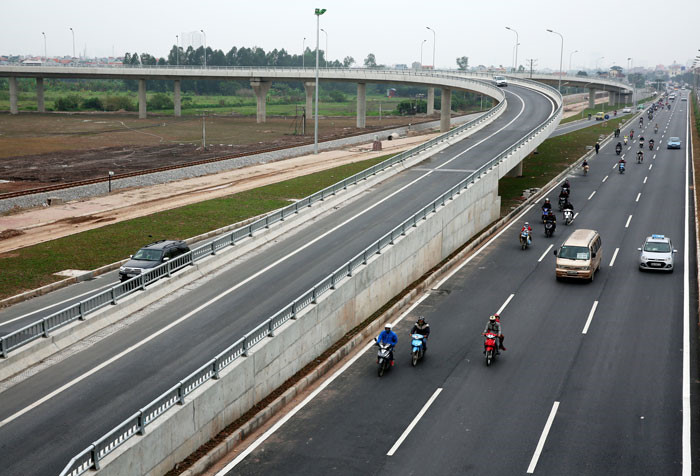
The latest government report shows that state budget revenue is not high enough to cover regular expenses and debt payments, and that investments for development have been relying on borrowed capital.
Thanks to official development assistance (ODA), Vietnam has developed important infrastructure works, including the Hai Van Tunnel, Can Tho and Thanh Tri Bridges, the Tan Son Nhat Airport international terminal, Nhat Tan Bridge, and T2 Terminal at the Noi Bai International Airport.
However, ODA capital is no longer plentiful and cheap. According to the Ministry of Planning and Investment (MPI), the World Bank will stop granting ODA to Vietnam by 2017, while the Asian Development Bank (ADB) will stop providing ODA in one or two years.
Some other countries including the UK, Belgium, Denmark and Spain have also stopped lending. This means that Vietnam will have to look for other lending sources which require higher interest rates and provide shorter-term loans.
Do Thien Anh Tuan from the Fulbright Economics Teaching Program (FETP) said it could be an opportunity to help Vietnam escape the ‘cost trap’.
| There are huge financial resources in Vietnam which still have not been mobilised for investment and development. |
The investment cost for one ODA project, especially in infrastructure, is very high, which makes the prices of infrastructure items high, despite the ODA capital’s preferential interest rates.
“As such, it would be better not to expect too much on ODA, and it would be better to go off ODA as soon as possible,” he said.
According to Tuan, there are many other sources from which Vietnam can mobilise capital for development, and two of them are the domestic private sector and foreign capital.
To be able to mobilise private capital, the state will have to reconsider its economic role.
“The State takes on too many jobs which can be undertaken by private businesses. As a result, private investors find it difficult to make investment with their strong resources. They can only make small investments which allow them to divest easily,” Tuan said.
Regarding foreign capital, he noted that in the last 30 years, Vietnam attracted mostly ‘mediocre’ investment, saying that the average investment capital of $14 million for every foreign direct investment (FDI) project was small.
As for foreign portfolio investment, Vietnam has attracted individual investors, but it still cannot lure big institutional investors.
Total ODA and concessional loans committed for Vietnam was over $2.56 billion in the first half of 2016, surging by 61 per cent year on year.


















